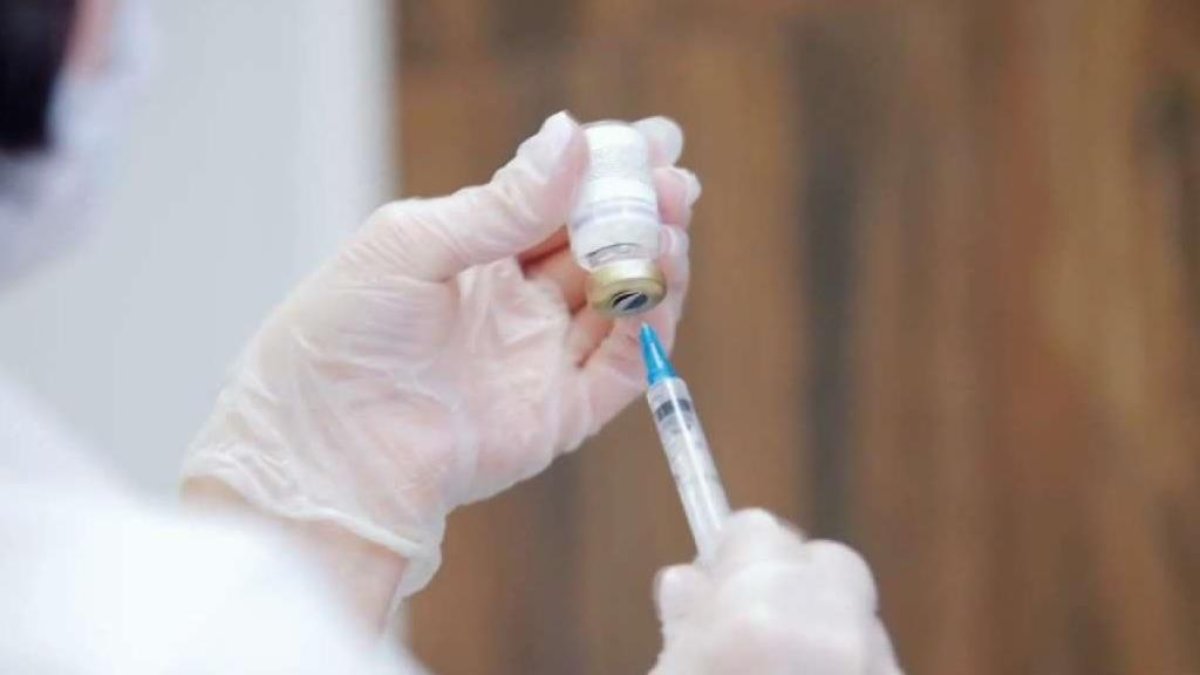
Many are worried about the safety of the COVID-19 vaccine and feel distrust towards the trial process.
“I think it would be a good thing, we have vaccines for pretty much every disease we’ve ever known,” said Jason Hernandez of East Hartford, thinking about the possibility of a COVID-19 vaccine.
Experts say one could be ready by the start of next year, and the responses on getting it are varied.
“I’d like to see the effects it has on other people before I jump in there,” said Lloyd Pond.
While some may not be first in line, several people told NBC Connecticut they’re in support of a COVID-19 vaccine.
“If you can prevent 75% of COVID cases, that’s good,” said John Harding, a physician from Massachusetts who says something is better than nothing. “If scientists come up with a safe vaccine and they’re testing it on like 30,000 people, they’ll get a pretty good idea on the safety.”
In August, Yale University and Yale New Haven Hospital joined a Pfizer clinical vaccine trial that combines phase two and phase three safety evaluations for 30,000 participants.
Local
“The reason to do a phase two phase three trial is to enroll large numbers of patients so that if there’s a rare but serious event, there’s enough individuals that it’s been tested on, you can exclude that the rare risk may not occur,” said Dr. Tom Balcezak, chief medical officer of Yale New Haven Hospital.
Running the phases together, under heavy monitoring, helps speeds up the process that could normally take years. But some worry there may not be enough participation from people of color.
“My concern is communities of color won’t participate in these trials at high enough rates and so we won’t know if there are differences in certain communities or certain groups,” said Summer Johnson McGee, Ph.D. and dean of the University of New Haven School of Health Sciences.
The history of syphilis trials among Tuskegee Airmen and Guatemalan women nearly 90 years ago still casts a shadow over medicine. But she says the process of clinical trials has come a long way.
“So, we have to start now building that groundwork in the community with trusted leaders, to get folks to understand we’re not experimenting on you, we’re not asking you to do something risky, we’re trying to help everyone protect the public health,” said McGee.
Gov. Ned Lamont offered the same thoughts Monday during his COVID-19 briefing in which he announced a new vaccine advisory council.
“That’s why we’re going to do this all in public,” said Lamont. “That’s why you’re going to hear all of best reasoning and best information along the way to do everything we can to give people the best confidence that this is no Tuskegee experiment, this is something we’re in together that’s going to keep us and our families safe.”
“We will not promote the vaccines in the state of Connecticut to residents regardless of age or comorbidity that it’s the right thing to do and safe for all of you,” said Dr. Reggie Eadie, Trinity Health President and CEO.
Jason Hernandez, who’s a person of color, says he’d get a vaccine and doesn’t consider the past in the decision.
“I don’t think that’s happening I think we’re just trying to protect our country and if that’s happening then I’m all for that,” said Hernandez.
He says fear may come from knowing people are protected. That feeling may be felt across all demographics when it comes to the vaccine because COVID-19 is just so new.
“We need not only an effective vaccine, but a safe vaccine,” said Dr. Albert Ko, professor at the Yale School of Public Health.
Ko says because we’re in a global pandemic, developing a vaccine quickly and safely is important. Along with running the phase two and phase three trials concurrently, the process is also moved along by federal funding, which allows companies and the government to share the risks during early development stages.
But the goal for safety and earning the public’s trust is the most vital part in creating a vaccine.
“They’re going all out, they’re doing multiple steps, steps that are usually done in a series, one after another, are actually being done concurrently so… that safe and effective vaccines are being done,” said Ko.